Past Events
Interested in Cotsen events? Sign up for our mailing list.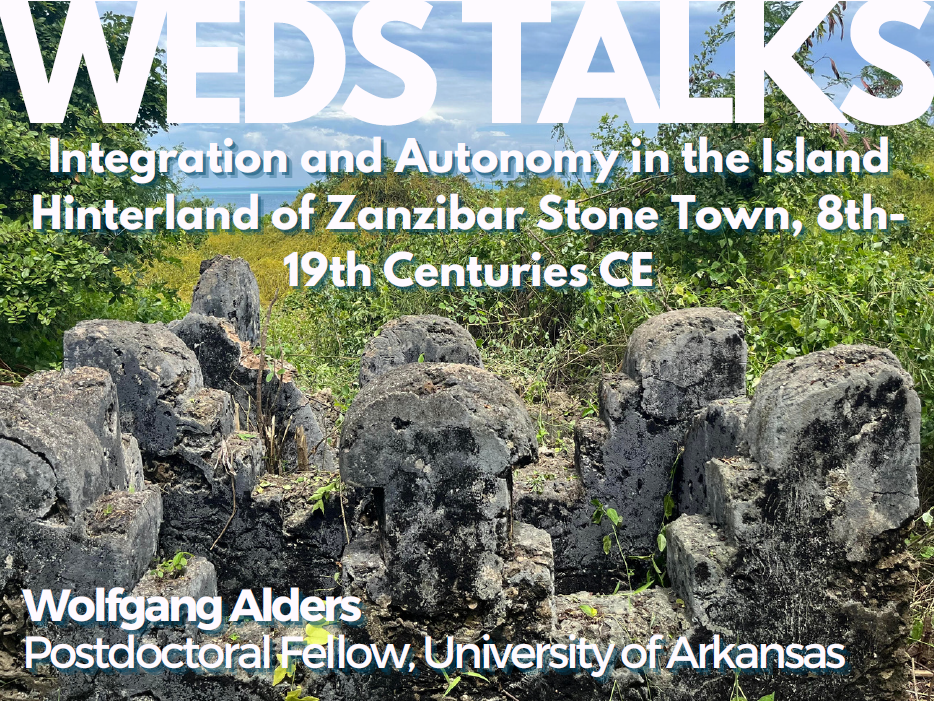
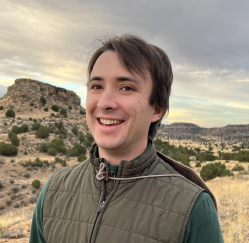
ABSTRACT: This presentation explores sociopolitical transformations on the East African Swahili coast through a consideration of urban and rural interactions on Unguja Island, in Zanzibar, Tanzania. From humble beginnings as a fishing village in the 10th century, the UNESCO world heritage site of Zanzibar Stone Town on Unguja grew into one of the wealthiest urban centers in the western Indian Ocean by the colonial era. Systematic field surveys guided by environmental models within the interstices of modern development around the town have enabled an investigation of social differentiation in the island’s hinterland. Surveys in 2023 recorded 55 new archaeological sites that help clarify the socioecological dynamics of early settlement on Unguja’s coasts by iron-working agriculturalists, the expansion of precolonial village communities inland, and transformations in the rural countryside associated with early colonial incursions. Ceramic distributions and settlement patterns attest to the integrative tendencies of rural Swahili communities with respect to emergent accumulations of social wealth. Integrative bottom-up activities of rural people may have shaped the trajectories of social complexity in coastal East African societies, specifically the long persistence of heterarchical political systems
Contact Sumiji Takahashi
Email sutakahashi@ioa.ucla.edu
Phone 310-825-4169
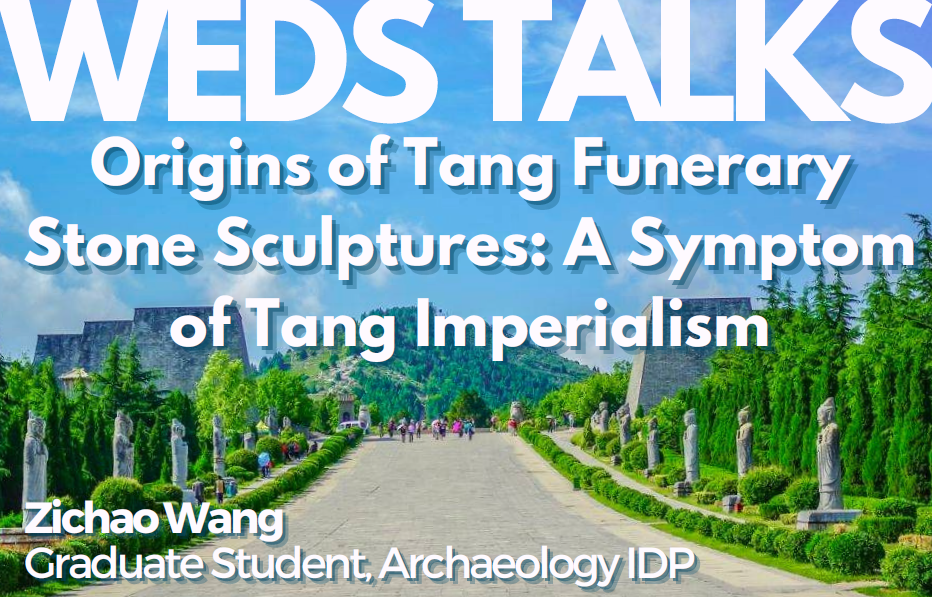
ABSTRACT: The Tang dynasty (618-907 CE) undoubtedly marks a special period ofChinese history for its cultural inclusiveness, marvelous artistic achievements, andunprecedented international influence. This talk will examine a special category of Tangimperial art: the funerary stone sculptures placed in front of the mausolea of emperors andtombs of high-level officials. By looking at the precedents of these finely produced anddeliberately displayed statues, both from Han to Tang, and from East Asia to Inner Asia, Iargue that all the categories of Tang funerary stone sculptures had come into being in aregionalist manner at least since the Southern and Northern Dynasties period (420-589CE), whereas the effort to incorporate these distinct regional traditions reflects this newlyborn empire's ambition of creating a "Culture of Ours."
BIO: Zichao Wang is currently a Ph.D student at the Archaeology InterdepartmentalProgram at UCLA. He graduated from the Chinese University at Hong Kong and McGillUniversity for two masters' degrees. Therefore, he is now a complete historian and a partialarchaeologist. With a focus on the political and cultural history of early China, he has beenwriting broadly on various topics of Chinese history. At UCLA, he attempts to fullyincorporate different sources and approaches to achieve a more comprehensiveunderstanding of Chinese history, which is, inevitably, also a part of world history.
Contact Sumiji Takahashi
Email sutakahashi@ioa.ucla.edu
Phone 310-825-4169
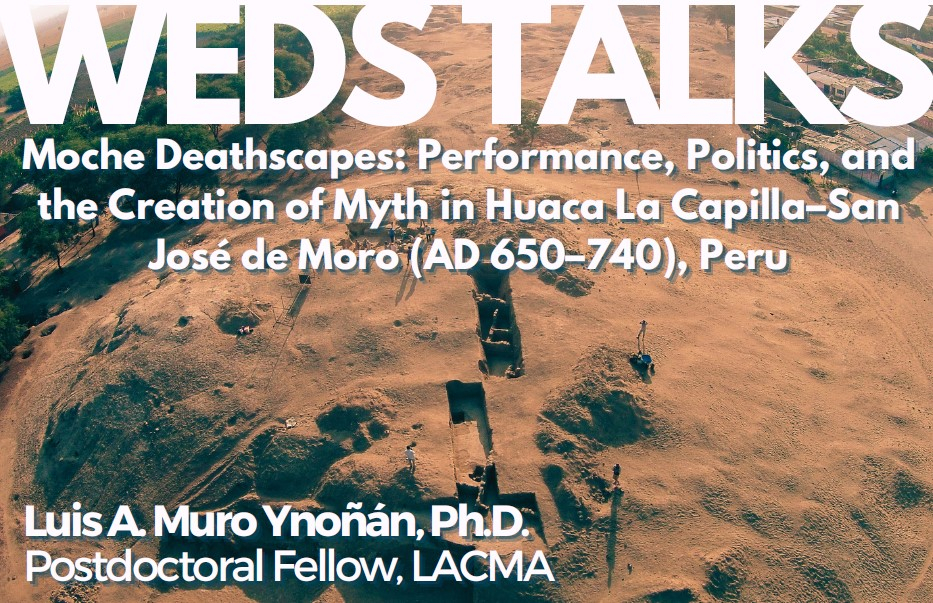
ABSTRACT: Death in the Moche world has traditionally been examined from object-centered perspectives that have favored discourses about hierarchy, status and power. However, such perspectives have left behind discussions about deathscapes and their role in the production of ancestors and the (re)distribution of political power. Based on my excavations at Huaca La Capilla, a monumental structure located in the Late Moche (650-850 CE) cemetery of San José de Moro, Jequetepeque Valley, I examine the dynamic and changing nature of mortuary landscapes and their monuments. I argue that Huaca La Capilla was the locus of body-centered performances that preceded the burial of Moche elite individuals. These performances were, ultimately, involved in the (re)production of myths of Moche ancestrality and particular notions of time, history, and construction of the being that gave political legitimacy to ruling groups in times of deep crisis.
BIO: Luis A. Muro Ynoñán is currently a Postdoctoral Fellow at the Los Angeles County Museum of Art and a Visiting Lecturer in the UCLA Department of Art History. Previously, he was a Postdoctoral Scientist at the Field Museum and a Pre-doctoral Fellow at the Pre-Columbian Studies program at Dumbarton Oaks. He holds a MA and Ph.D. from Stanford University and a BA and Licenciatura from Pontifical Catholic University of Peru. As a Peruvian archaeologist, Dr. Muro is broadly interested in the relationships between performance, death, and politics in the ancient Andes, integrating anthropological and performance theory with multi-scalar methods of spatial analysis and absolute dating techniques. He is now leading the Úcupe Cultural Landscape Project in Lambayeque, Peru, a multidisciplinary project that seeks to study the origins of Moche religion in relation to climatic fluctuations in the Andes in the first millennium CE.
Contact Sumiji Takahashi
Email sutakahashi@ioa.ucla.edu
Phone 310-825-4169
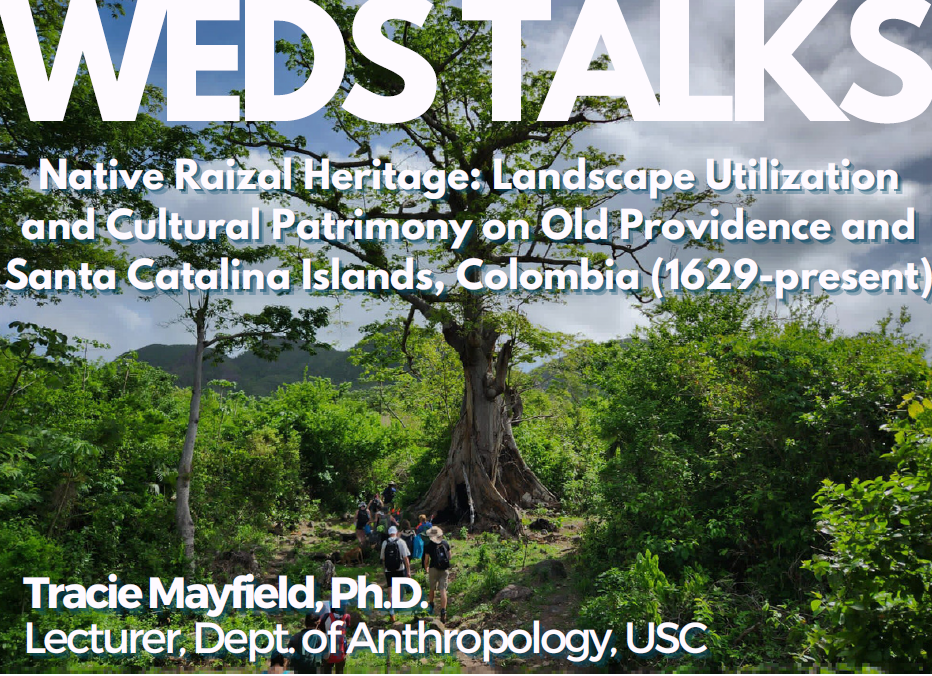
ABSTACT: The islands of Old Providence and Santa Catalina, located 130 miles off the coast of Nicaragua and around 8.5 square miles in size, have been a center of global trade, resource extraction, and military action since 1629, when the English Puritan venture capitalists of the Providence Island Company —whose shareholders also held stakes in the Virginia Company. The Virginia Company was one of the first to enter the American slave market, beginning in 1619, when their ship, the Treasurer, docked in Virginia several days after the first slaves arrived on the White Lion. The Islands are still occupied by descendants of the original English Puritan colonists, enslaved Africans, and self-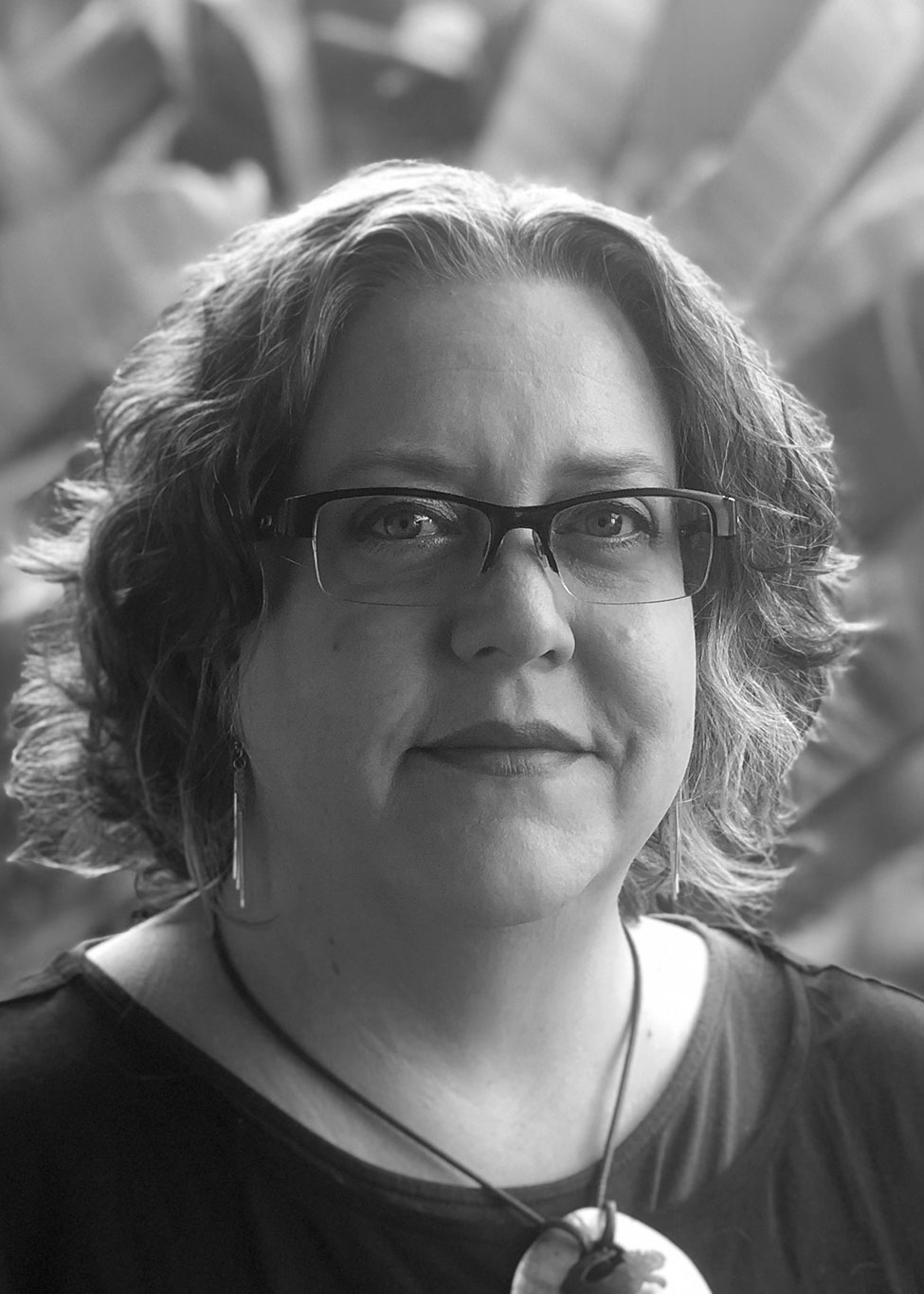 emancipated Africans, who established a coterminous Maroon colony that included peoples of Indigenous and European descent fleeing the colonial industrial complex; and who now identify collectively as Raizal. In her presentation, Dr. Mayfield explores Native Raizal heritage —both tangible and intangible— through the lens of enduring forms of landscape utilization and discrete types of cultural patrimony.
emancipated Africans, who established a coterminous Maroon colony that included peoples of Indigenous and European descent fleeing the colonial industrial complex; and who now identify collectively as Raizal. In her presentation, Dr. Mayfield explores Native Raizal heritage —both tangible and intangible— through the lens of enduring forms of landscape utilization and discrete types of cultural patrimony.
BIO: Dr. Tracie Mayfield is an anthropological archaeologist, ethnohistorian, and teaching professor with research specializations in the archaeologies of colonialism, zooarchaeology, ceramics, heritage studies, and community-led research. She is the Principal Investigator of the Old Providence and Santa Catalina Island (Colombia) Archaeological Project and Co-Director of the San Pedro, Ambergris Caye (Belize) Archaeological Project.
Contact Sumiji Takahashi
Email sutakahashi@ioa.ucla.edu
Phone 310-825-4169
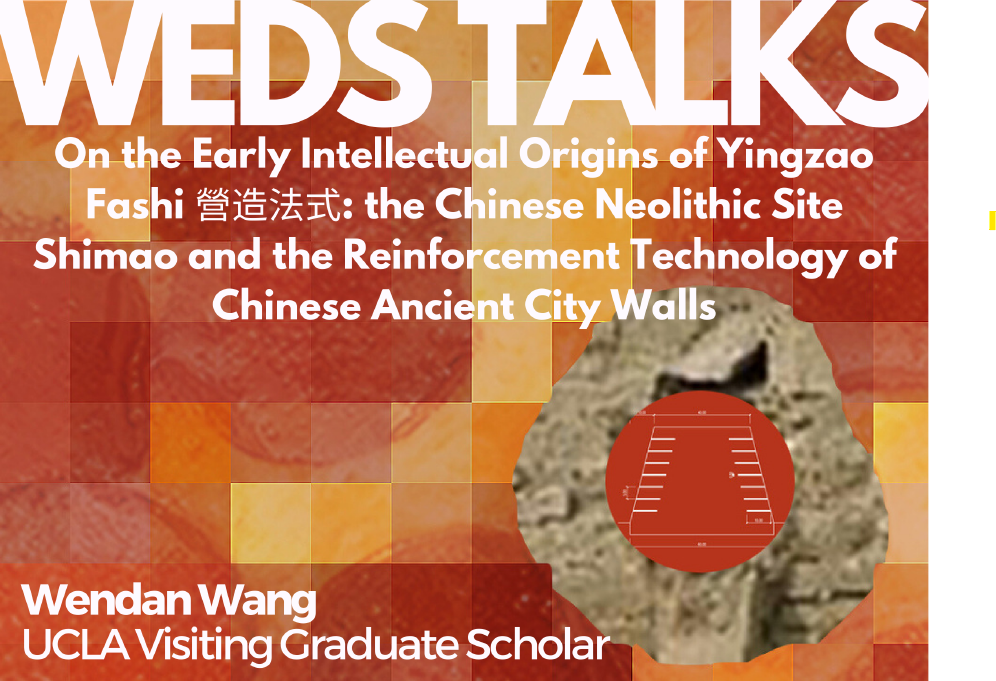
ABSTACT: Renmu (絍木 “reinforcing timber”) is a timber component that was used to build ancient city walls. It is recorded in the early twelfth-century compilation of architectural principles known as Yingzao fashi營造法式 (Principles and Forms of Architectural Constructions). Wendan is willing to share
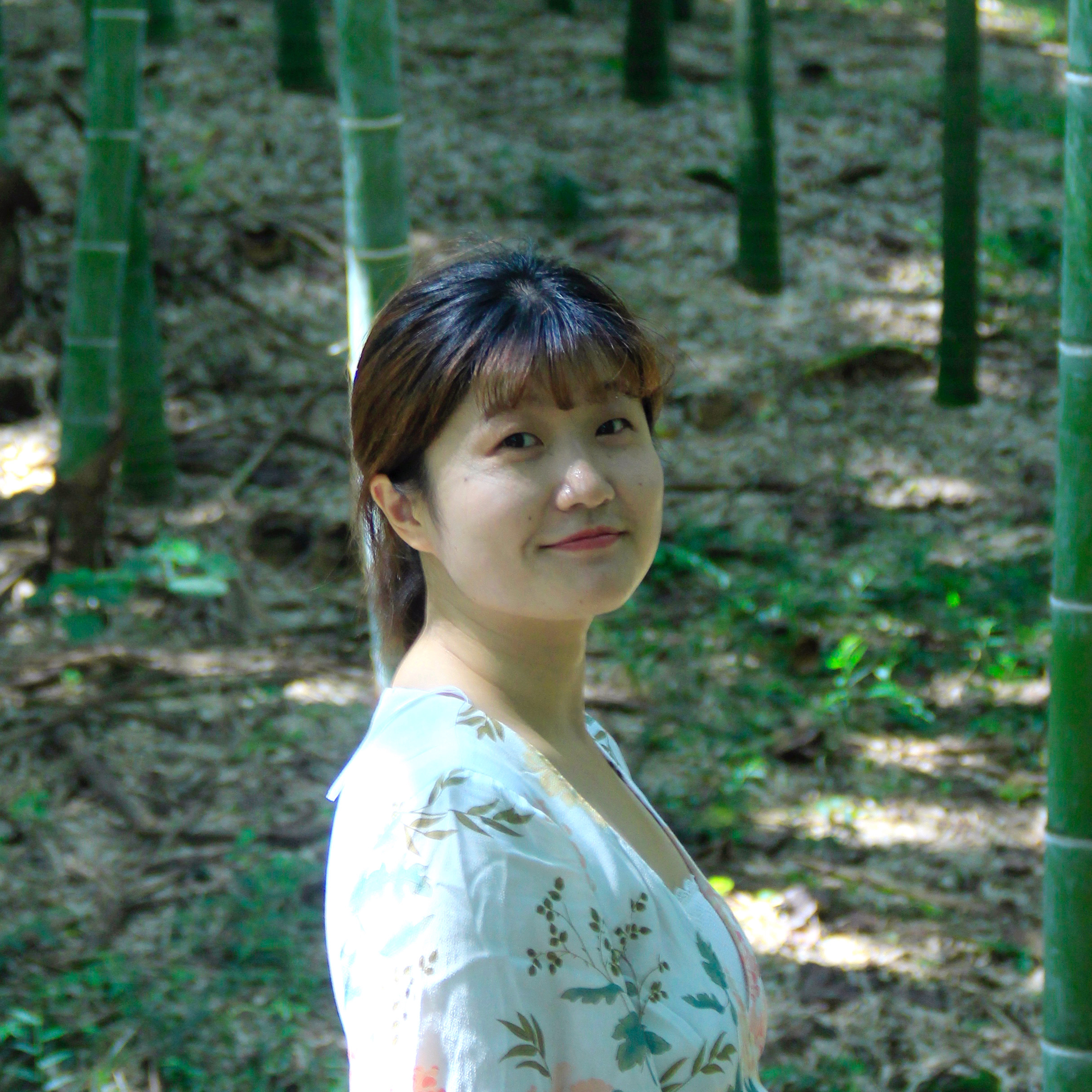
element technique, she attempts to verify the feasibility of reconstruction using the Abaqus software to analyze the overall stability of the slope in these reconstruction schemes.
BIO: Wendan Wang is from Hunan, China. She received her BA in Archaeology at Jilin University. Her next destination was Nanjing University where she was trained as an architectural archaeologist and obtained an MA. Her doctoral research will focus on Chinese buildings and settlements in the late Neolithic Age.
Renmu (絍木 “reinforcing timber”) is a timber component that was used to build ancient city walls. It is recorded in the early twelfth-century compilation of architectural principles known as Yingzao fashi營造法式 (Principles and Forms of Architectural Constructions). Wendan is willing to share her stories about how to explore renmu’s function and reconstruct its form by interpreting documents and analyzing similar remains from ancient city sites. And based on the shear strength reduction finite element technique, she attempts to verify the feasibility of reconstruction using the Abaqus software to analyze the overall stability of the slope in these reconstruction schemes.
Contact Sumiji Takahashi
Email sutakahashi@ioa.ucla.edu
Phone 310-825-4169
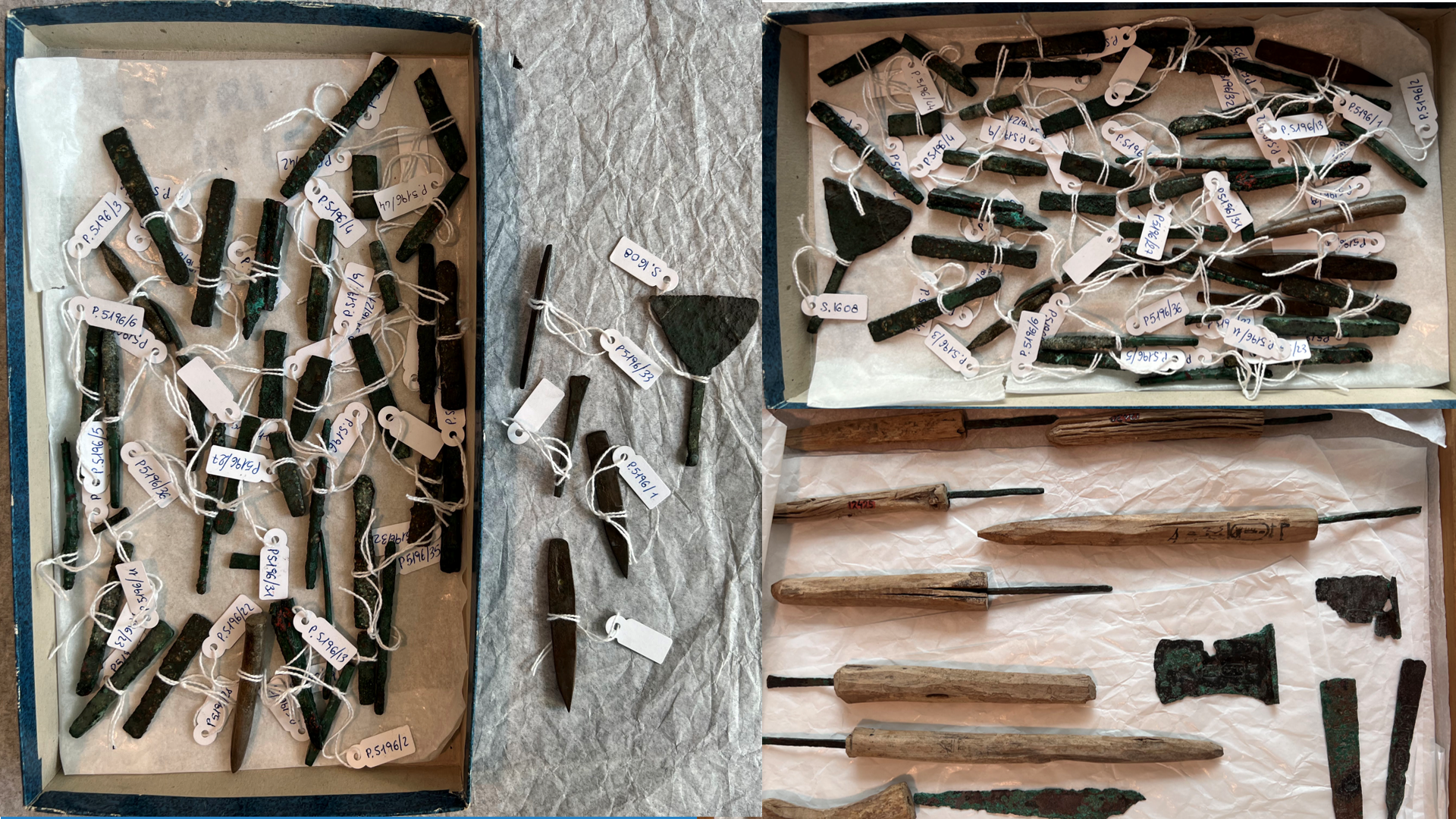 Abstract: In Egyptological scholarship, the term “model tools” has been used to characterize miniature representations of implements that have been stripped of their practical function, emphasizing their relatively “cheap” method of production. Their categorization as “model tools” was established primarily on size by Flinders Petrie in his 1917 monograph Tools and Weapons. Due to this characterization, “model tools” are either implied or exclusively said to be produced and used as a ritual object and, therefore, have no functional ability outside the ideological realm. While continued discourse on their role and function in the mortuary context has continued to reinforce their ritual purpose, metallurgical analysis allows us to problematize their confinement to the ritual sphere and further reveals the object’s life history.
Abstract: In Egyptological scholarship, the term “model tools” has been used to characterize miniature representations of implements that have been stripped of their practical function, emphasizing their relatively “cheap” method of production. Their categorization as “model tools” was established primarily on size by Flinders Petrie in his 1917 monograph Tools and Weapons. Due to this characterization, “model tools” are either implied or exclusively said to be produced and used as a ritual object and, therefore, have no functional ability outside the ideological realm. While continued discourse on their role and function in the mortuary context has continued to reinforce their ritual purpose, metallurgical analysis allows us to problematize their confinement to the ritual sphere and further reveals the object’s life history.
My paper will present a compositional analysis of Bronze Age metal tools from the collections of the Brooklyn Museum and Museo Egizio in order to re-examine the utilitarian function of “model tools” and further nuance their designation as “models”. As the majority of my corpus has an unknown provenance, my discussion will be limited to the objects’ alloy composition and how this might reflect their efficacy as utilitarian tools in the hands of craftspeople. Comparative analysis, both temporarily and contextually, allows us to explore whether an object’s function influenced alloy choice. The idea is to not only build a corpus for comparanda, but to also challenge our etic classification of objects and provide a space for debate and reconfiguration of modern categorizations.
Contact Sumiji Takahashi
Email sutakahashi@ioa.ucla.edu
Phone 310-825-4169
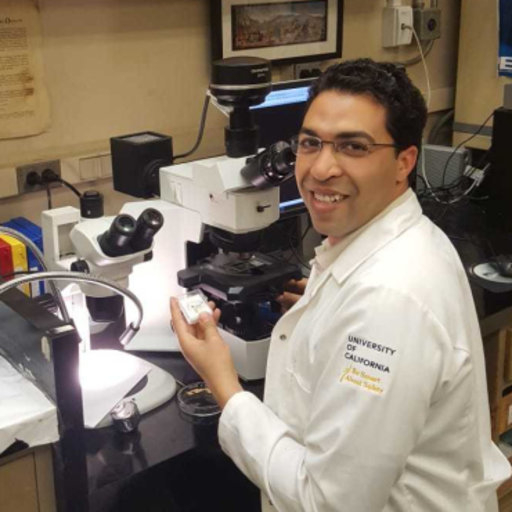 Abstract: Preservation of organic food remains from Ancient Egypt is an exceptional aspect of the archaeology in this region. The level of preservation of these materials has contributed to the early development of archaeobotany and radiocarbon dating. In this talk I will present unpublished food remains from the predynastic site cemetery of Nag ed Deir, and the New kingdom site of Deir el Ballas, in Upper Egypt. The materials were excavated in the early 1900s by George A. Reisner and Albert Lythgoe and are currently housed at the Hearst Museum of Anthropology at the University of California, Berkeley. I will discuss the results of interdisciplinary analyses applying archaeobotanical and isotopic methods to plant foods from these two sites to understand the social history of food in ancient Egypt and anthropogenic impact of climate changes on the foodways and social structures.
Abstract: Preservation of organic food remains from Ancient Egypt is an exceptional aspect of the archaeology in this region. The level of preservation of these materials has contributed to the early development of archaeobotany and radiocarbon dating. In this talk I will present unpublished food remains from the predynastic site cemetery of Nag ed Deir, and the New kingdom site of Deir el Ballas, in Upper Egypt. The materials were excavated in the early 1900s by George A. Reisner and Albert Lythgoe and are currently housed at the Hearst Museum of Anthropology at the University of California, Berkeley. I will discuss the results of interdisciplinary analyses applying archaeobotanical and isotopic methods to plant foods from these two sites to understand the social history of food in ancient Egypt and anthropogenic impact of climate changes on the foodways and social structures.
Bio: Amr Khalaf Shahat, is a postdoctoral researcher at Ancient Agriculture and paleoethnobotany lab, the Cotsen Institute of Archaeology at UCLA. He earned his PhD in Egyptian Archaeology and Paleoethnobotany from UCLA, and his Masters in Egyptology from the University of Memphis. He is interested in the study of Egyptian foodways through the analysis of plant remains from tombs and settlements and museum collections to answer questions related to cultural identities, and cross-cultural interaction.
Contact Sumiji Takahashi
Email sutakahashi@ioa.ucla.edu
Phone 310-825-4169
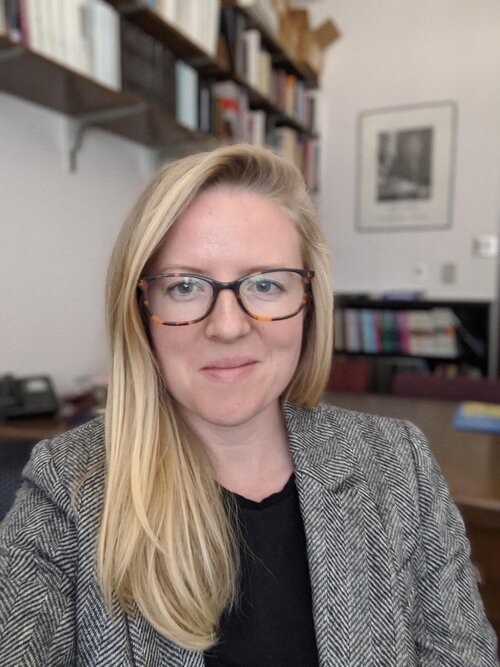 Abstract: In the North American Southwest, the long-term centrality of birds to Pueblo and Ancestral Pueblo life has been demonstrated both ethnographically and archaeologically. This talk explores the relationship between people and birds in Chaco Canyon during its major occupation between 800 and 1150 CE. Located in northwestern New Mexico, Chaco has been the subject of extensive study and debate, especially regarding the nature of social organization and inequality. Six museum collections were examined in order to produce a dataset that presents all avifaunal remains excavated over the last 130 years. Results not only shed light on the value of birds to the prehispanic occupants of Chaco Canyon, but contribute to ongoing debates regarding the nature of social organization in the canyon. This project also demonstrates the importance of (re)examining collections from historic excavations and the value of using legacy and archival data to enhance provenience and contextual information.
Abstract: In the North American Southwest, the long-term centrality of birds to Pueblo and Ancestral Pueblo life has been demonstrated both ethnographically and archaeologically. This talk explores the relationship between people and birds in Chaco Canyon during its major occupation between 800 and 1150 CE. Located in northwestern New Mexico, Chaco has been the subject of extensive study and debate, especially regarding the nature of social organization and inequality. Six museum collections were examined in order to produce a dataset that presents all avifaunal remains excavated over the last 130 years. Results not only shed light on the value of birds to the prehispanic occupants of Chaco Canyon, but contribute to ongoing debates regarding the nature of social organization in the canyon. This project also demonstrates the importance of (re)examining collections from historic excavations and the value of using legacy and archival data to enhance provenience and contextual information.
Bio: Dr. Kate Bishop is an Assistant Professor in the Department of Anthropology at the University of Illinois Urbana-Champaign. She received her PhD in Anthropology from UCLA in 2019. Her research has focused on developing an understanding of human-animal relationships throughout the Americas, spanning the last 4,000 years of the human past and ranging geographically from New Mexico, Guatemala, Mexico, and California. Her current research focuses specifically on the importance of birds in the Ancestral Pueblo region of the Southwest United States. Through her research she seeks to highlight the importance of legacy data, collections-based research, and contextual reconstruction of historic collections.
Contact Sumiji Takahashi
Email sutakahashi@ioa.ucla.edu
Phone 310-825-4169
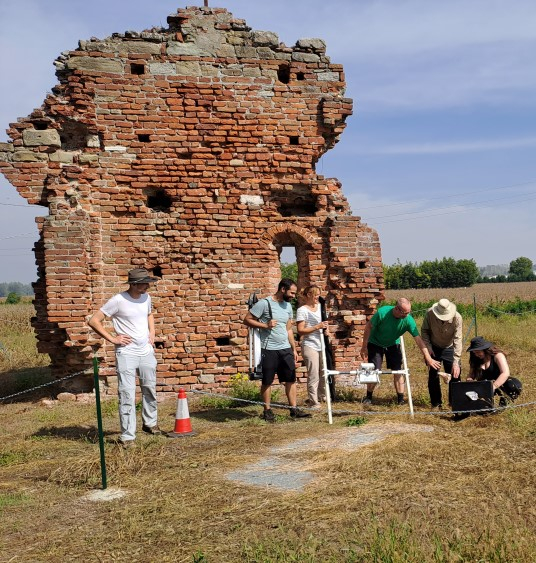
Abstract: The project Ancient and Modern Communities at Industria is a research effort of the Cotsen
Institute, Kent University (UK), Newcastle University (UK), and the Politecnico di Torino (Italy).
The main focus of the project is a diachronological study of communities and their environment. Starting with present day Monteu da Po, ancient Industria, in northern Italy, we aim to learn about tra
ditional farming, industry, and daily life of the inhabitants of the region through time, going back to the Roman Period (first century CE). Through a dialogue with the community, literature study, and archaeology, we aim to expand our understanding of ancient Industria, modern Monteu da Po, and neighboring communities. The project hopes to contribute to the economic development of the region. In our first field season we employed various non-destructive techniques near the ruins of the church of San Giovanni di Dustria, just north of the ancient city center.
Bios: Willeke Wendrich is a Professor of Egyptian Archaeology and Digital Humanities in the Department of Near Eastern Languages and Cultures, as well as the Joan Silsbee Chair of African Cultural Archaeology. She is the Director of the Cotsen Institute and Editor-in-Chief of the online UCLA Encyclopedia of Egyptology.
Hans Barnard MD, PhD is an Associate Adjunct Professor in the Department of Near Eastern Languages and Cultures as well as Associate Researcher at the Cotsen Institute of Archaeology. As an archaeological surveyor, photographer and ceramic analyst he has worked on sites in Armenia, Chile, Egypt, Iceland, Italy, Panama, Peru, Sudan, Syria, Tunisia and Yemen.
Contact Sumiji Takahashi
Email sutakahashi@ioa.ucla.edu
Phone 310-825-4169
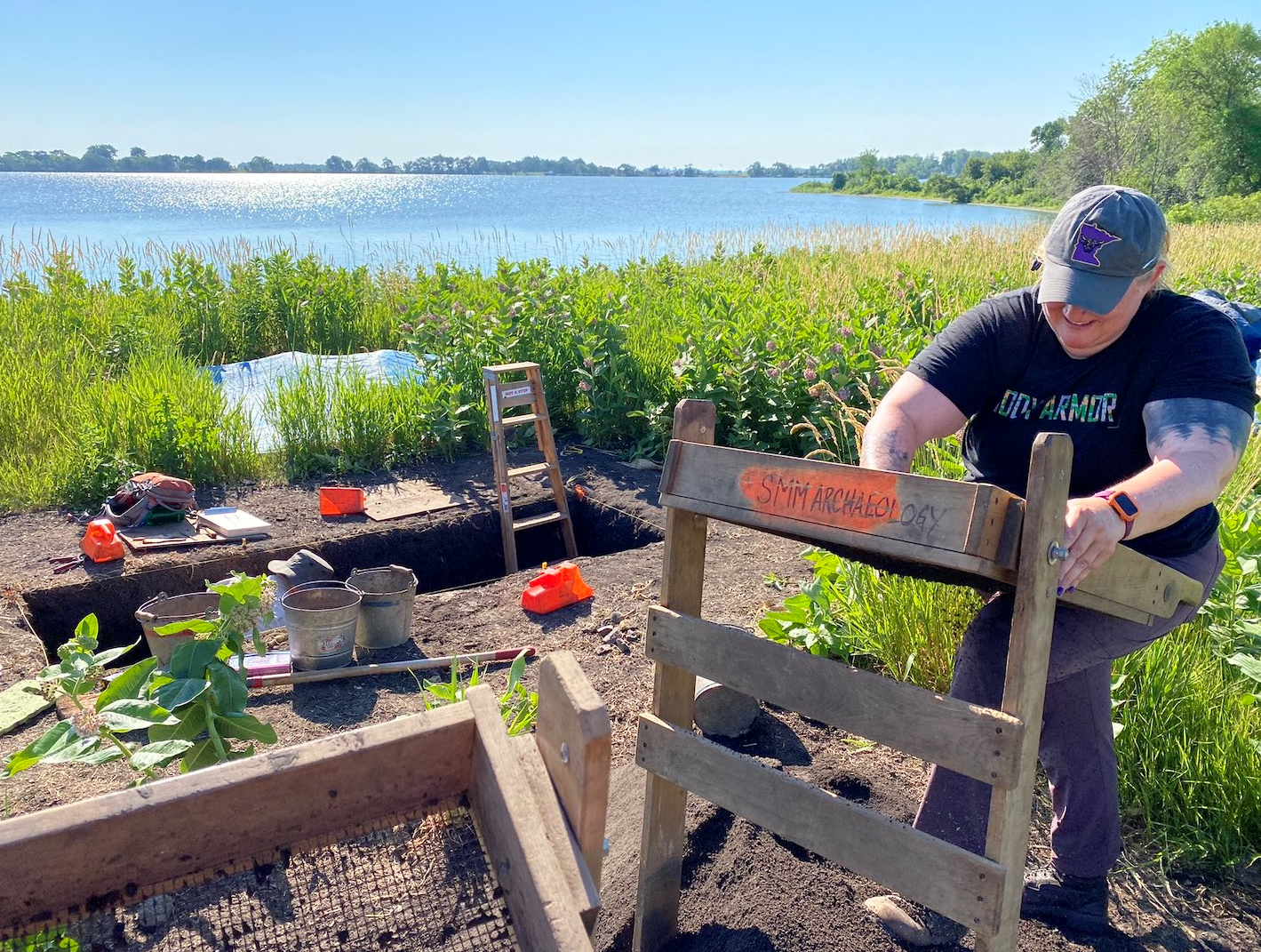
Abstract: People have occupied and visited the Pedersen Site (21LN2), an island site in southwestern Minnesota, for at least 12,000 years. The site is rare in Minnesota, containing some of the earliest stone tools and evidence of repeated occupation up to the present day. The Science Museum of Minnesota began investigating the site from 1973-1975, amassing a large collection that remained largely uninventoried for many decades, making it difficult to access or research. In this talk, I will discuss the rehousing of the collection to adhere to modern standards as well as preliminary findings and some pretty cool artifacts in the assemblage. The second part of the talk will be about the 2021-2022 excavation/survey of the island to explore previously uninvestigated areas, detailing why we were there and the amazing finds we uncovered during the dig.
Bio: Taylor Brehm is a first-year conservation master's graduate student in the UCLA/Getty Conservation Program. She received her BA in archaeology with a minor in anthropology from the University of Wisconsin-La Crosse. Before arriving at UCLA, she worked in the conservation and archaeology departments at the Science Museum of Minnesota as well as a private practice conservation firm in Minneapolis, Minnesota.
Contact Sumiji Takahashi
Email sutakahashi@ioa.ucla.edu
Phone 310-825-4169
- ‹ previous
- 5 of 22
- next ›


